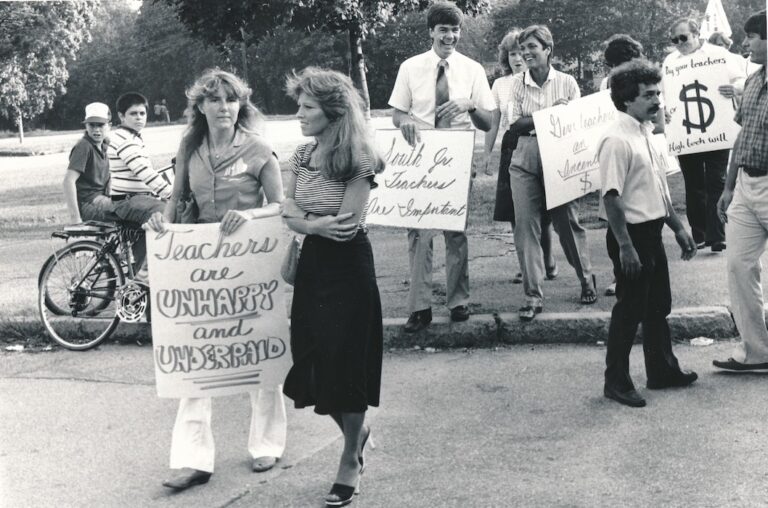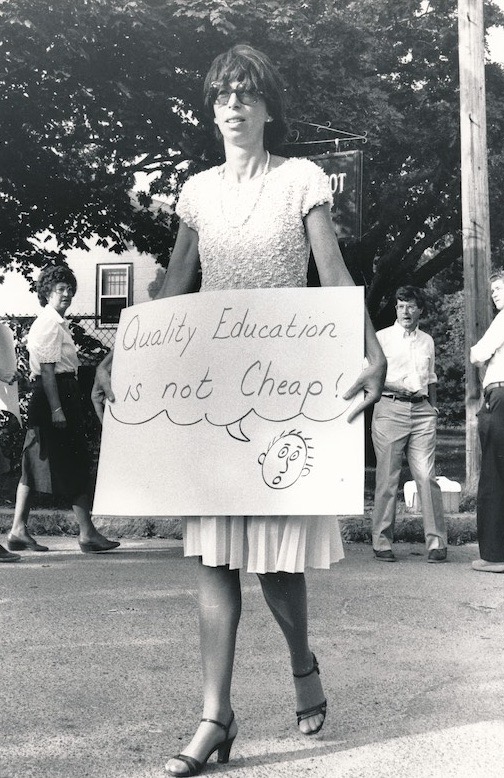Weymouth
Pay was key issue in Weymouth strike

We had to let the community know that we’re a force to be reckoned with in Weymouth. While a strike is the last resort, we felt we had to go that far to resolve this crisis.
Frustrated by stalled negotiations, more than 97 percent of Weymouth’s teachers participated in a one-day strike on Sept. 1, 1983. The main sticking points were salaries and reductions-in-force language.
Town Meeting members had “effectively killed” raises for the teachers by cutting $500,000 from the School Committee’s budget, according to MTA Today.
The strike in Weymouth was the first of 21 strikes in the 1980s, caused in part by passage of Proposition 2½, a ballot measure that severely limited a community’s ability to increase property taxes and that stripped school committees of fiscal autonomy.
The impact of Prop. 2½ on public education was swift, leading to staff layoffs, school closures and labor strife that continued into the mid-1990s, when a major increase in state aid advocated for by the MTA finally started reaching school districts.
The two-year package ratified in Weymouth after the strike was over contained a zero percent increase for that school year and a 6 percent raise the following year, with another 4 percent added if the Town Meeting could be persuaded to allocate the funds.

